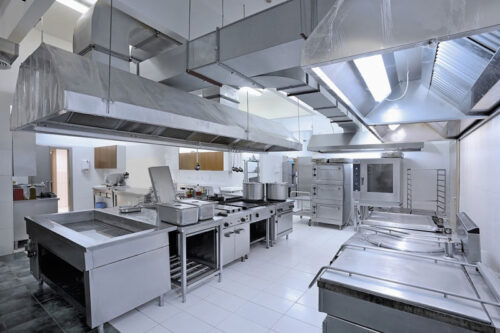5 Traits of Stainless Steel
5 Traits of Stainless Steel That Make It Suitable for Food Processing
Although there is a multitude of factors that need to be considered when having custom food processing equipment manufactured, you cannot underestimate how invaluable your choice of material is.
The material you pick will come into direct contact with the food being manufactured, so you must base your decision on compatibility rather than cost. With that said, stainless steel possesses an array of traits that makes it suited for the manufacture of food processing equipment, as illustrated below.
1. Stainless Steel Is Impermeable
The impermeable nature of stainless steel makes it perfectly suited to be used in food processing equipment in several ways. For starters, the non-porous nature of this metal simplifies the sterilization process for you. Hence, you can maintain high hygiene standards whenever you utilize the food processing equipment.
Secondly, the imperviousness of stainless steel ensures that cleaning the food process equipment after each use is effortless, as there are no pores to harbor food scraps. Consequently, there is a diminished threat of bacteria breeding on the equipment.
Furthermore, the robust strength of stainless steel coupled with its impenetrable surface makes it resistant to damage from a wide range of cleaning techniques such as scrubbing, chemical solvents, and so on.
2. Stainless Steel Is Easily Customizable
Unlike some metals that can only be fabricated by employing a limited number of techniques, stainless steel can be customized in a wide variety of ways.
In addition to cutting, stainless steel can be stamped, welded, bent, folded, and more. This means you can use stainless steel for custom food processing equipment such as ovens, meat grinders, peelers, and other equipment.
3. Stainless Steel Is Corrosion Resistant
While there are different grades of stainless steel, one common quality they share is containing a percent of chromium in their composition.
Chromium protects stainless steel from rust by developing a layer of chromium oxide on its surface, which limits moisture penetration. This corrosion resistance will ensure that the food processing equipment does not contaminate the food with specks of metal, as this will render the processed product unsafe for human consumption.
Furthermore, corrosion resistance ensures the surface of the stainless steel equipment does not abrade. Therefore, contaminants will not adhere to the surface of the food processing equipment because the surface will remain smooth and impervious.
4. Stainless Steel Is Non-Polluting
Rust is not the only contaminant that food processing equipment can transfer to your products. You should also bear in mind that any changes to the natural properties of the food can be perceived as contamination, such as alterations to the taste and smell of the food items.
To make sure that does not happen, you must choose a non-polluting metal, such as stainless steel, for the fabrication of the custom food processing equipment. Not only does stainless steel have a low carbon content, but is invulnerable to salt. Thus, the food processing equipment will not interact with the ingredients in the food or absorb their properties.
5. Stainless Steel Is Heat Resistant
If you need to employ high temperatures when you utilize your food processing equipment, the machinery needs to withstand this heat. Stainless steel is an ideal choice since it will maintain its structural integrity when exposed to extreme temperatures. The chromium content of the stainless steel lends this material a high degree of resistance to heat damage. This trait is invaluable if the food processing techniques entail routinely exposing the ingredients to heat.
In addition to the manufacture of food processing equipment, Jaygo Incorporated also specializes in the manufacturing of a diverse range of industrial and processing equipment, making them a top supplier for your equipment needs.


